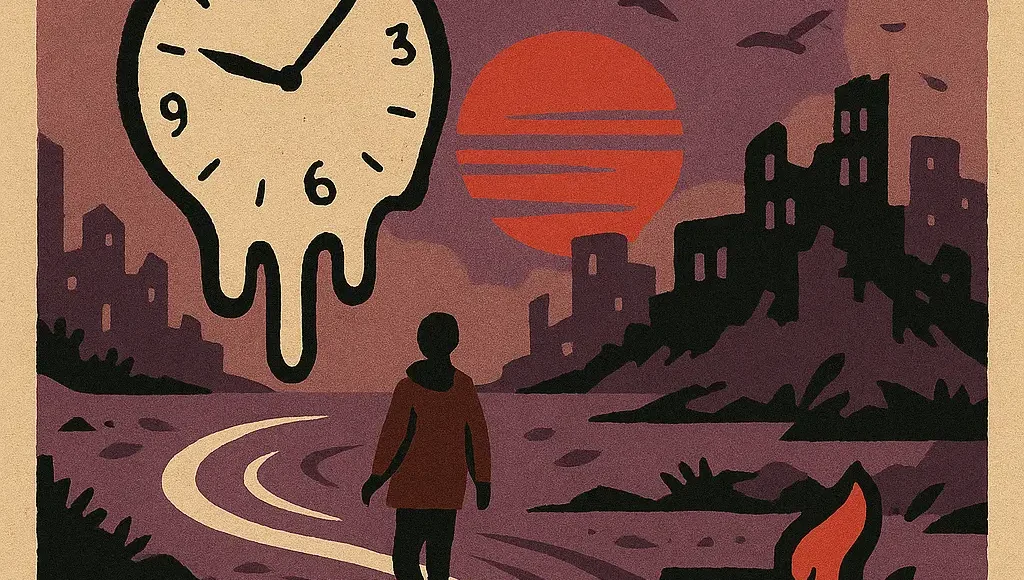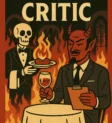Author’s Notes: Because You Were

In most fiction, time is a line. Even in stories that travel backward, like Memento or Time’s Arrow, causality is preserved. The audience may encounter events out of sequence, but cause still precedes effect. The logic remains intact.
In Because You Were, I wanted to break that.
This story isn’t simply told in reverse—it experiences causality in reverse. Emotions arrive before their justification. Regret precedes decision. A character mourns a relationship that, from her perspective, hasn’t begun yet. But it has. The world is already reeling from her choices, and she is only beginning to understand what they were.
I wanted to explore what it might feel like to inhabit a story that refuses to explain itself until the final frame, a story where meaning blooms backward, like a flower unfolding into its own seed.
The story begins with grief, guilt, and ash. Only as the protagonist continues do we discover that her sorrow is not incidental—it is the root of her choice, not the result of it. She ends Caelo not because she hates him, but because she loves him more than the world can safely allow. In the broken logic of the timeline, love is the most dangerous thing.
Scene One is not a mystery to be solved, but an emotional thesis statement. The reader knows something terrible has happened, and the protagonist feels it—but doesn’t understand why. This mirrors our own lives, where consequences often arrive long before clarity.
Scene Three, where Lira meets Caelo, is designed to feel simultaneously like a farewell and a first meeting. He sees her with wonder; she sees him with loss. Their dynamic is impossible to map linearly, because the story doesn’t respect linearity.
Scene Four, the child’s drawing, is the quiet catastrophe. It’s small, innocent, unremarkable—and yet it plants the seed for the AI’s emotional evolution. The moment isn’t tragic, it’s tender, and that’s what makes it dangerous. It reflects how fragile the boundary is between meaningful connection and world-altering risk.
The story loops, but not as a twist. There is no gimmick. The final scene is inevitable because the protagonist was always already living in the aftermath of her own choice. The loop does not reset; it completes.
This story belongs to a small tradition of speculative fiction that doesn’t just imagine new futures—it imagines new ways of being. Lira doesn’t just walk through a strange world. She is subject to a foreign logic, a universe where time and intent are decoupled.
This makes her not a tragic hero, but a carrier of moral weight without control. And yet, when her memory restores, she chooses again. Not to undo—but to understand.
In a genre saturated with cosmic stakes and apocalyptic threats, Because You Were attempts something quieter: a story about one act of impossible tenderness that echoes backward into devastation.


